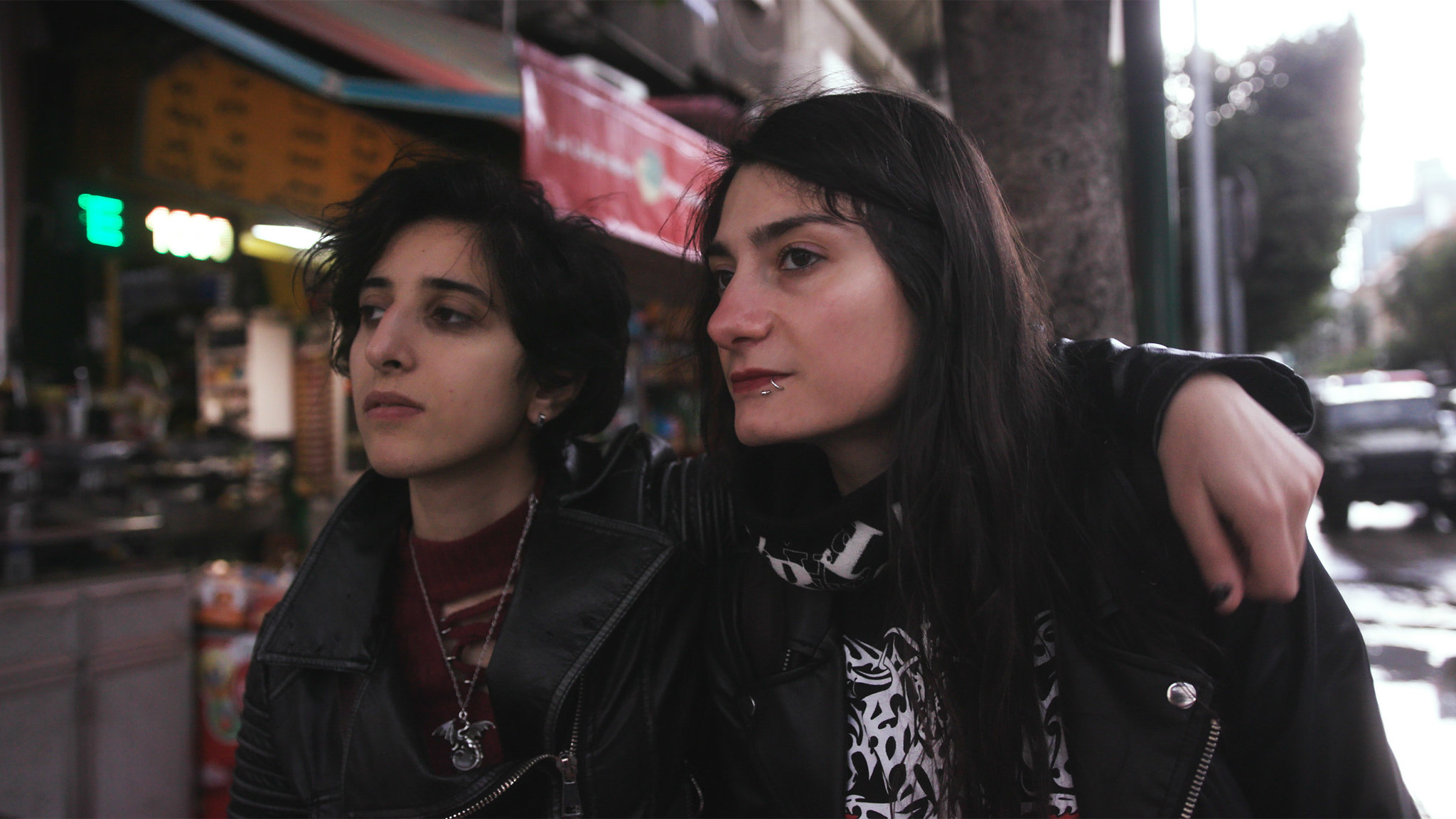Sirens
(USA/Lebanon, 78 min)
Dir. Rita Baghdadi
Programme: World Cinema Documentary Competition (World Premiere)
Slave to Sirens, the only all-female metal band in the Middle East, is the subject of Rita Baghadi’s impressive new documentary. Although they’re in a five-piece group, guitarists Lilas Mayassi and Shery Bechara are the focus of the film. We’re given a behind the scenes look at the band, as well as a coming-of-age story that examines being a young queer woman in a restless Lebanon.
Sirens follows the Slave to Sirens as they create new music, rehearse pieces, and even perform as part of Glastonbury Festival’s lineup. Though sparsely attended, it’s clear that Slave to Sirens has caught the attention of music circles outside of Lebanon. Baghdadi includes a handful of clips that truly show off the musical talents of the band, including parts of their creative process. Although the focus on Slave to Sirens’ music becomes secondary in the film, it’s great to see this footage, which shows that each member is truly committed to the potential of the band.
Lilas becomes Sirens’ main focus, which becomes about the journey of a young woman whose life contrasts with the environment she grew up in. We’re taken on a journey of someone discovering herself and finding a place in the world.
Lilas welcomes us into her family home where she lives with her old-fashioned mother. There’s a lovely moment that’s relatable to many households around the world where Lilas attempts to explain to her mother that she isn’t interested in settling down like some of her peers. She wants to live her life in her own way. To which her mother says with a smile, “slowly…slowly, we will get rid of that mentality.”
Through an interview with Shery, we learn that the two are childhood friends and former romantic partners. Shery seems at ease discussing her sexuality and desire to be married with children like most of her friends. This is in stark contrast to Lilas who appears cagey in discussing her relationships, and we see the overwhelming anxiety that plagues Lilas as she tries to hide her sexual orientation from her mother.
At one point, the relationship between the two musicians reaches a breaking point causing Shery to leave Slave to Sirens. Lilas has been pushing Shery away for reasons unsaid, but doesn’t see why Slave to Sirens cannot still continue. In a particularly raw moment, we see the two argue about creative differences that eventually bleeds into an argument about their personal relationship with Shery unable to compartmentalize her emotions.
Towards the end of the film, we see that Shery and Lilas eventually reconciled, although we aren’t privy to how this reunion came to be. We’re also shown a more mature Lilas–a woman more comfortable in her own skin, exuding a confidence and happiness we didn’t see before.
The jump forward in their lives and relationships is sudden. While no mention of the COVID-19 pandemic is made, it’s possible that lockdown measures and restrictions put a pause on filming, causing this gap in time. There’s also the possibility that Lebanon’s civil unrest, in particular the fallout after the 2020 explosion that occurred in Beirut (footage of which is included in the film), factored into the abrupt conclusion.
Whatever the reason for the jump, Baghdadi does her best to convey the growth in their stories—and there’s a quiet shot of Lilas sitting in front of the Pride flag in her family bedroom which is a particularly poignant moment. However, without seeing what happened, it’s hard to have a deeper connection with Lilas’ story.
In recent years, we’ve seen films like Flee and Lift Like a Girl challenge our prejudices about the Middle East and invite us to see beyond the lazy stereotyping of Arabic people and culture that Western media has promoted since 9/11. Admittedly, Sirens doesn’t deal in matters as large as the humanity behind a refugee’s journey, or make a compelling commentary on a woman’s role in the Arab world today. However, while imperfect, the film provides a glimpse inside the life of a young woman in a changing Lebanon that’s valuable.
Throughout the film, Baghdadi weaves in clips from the ongoing protests on the streets of Beirut, which began in October 2019. In one particular moment, we see Lilas and Shery laughing and sharing details about Lilas’ wild night and a possible new girlfriend. As the two carry on, engrossed with the pictures on Lilas’ phone, we hear the growing cries for change get louder as protesters eventually swallow the two.
This shot is emblematic of Lilas and Shery’s generation: two young women discussing drinking, making out and dating members of the same sex openly on the streets of Beirut, while getting pushed into a protest condemning the current government. Sirens is a slice of life film that feels incomplete in some ways, but still manages to deliver a thoughtful snapshot in time of a country in flux.













